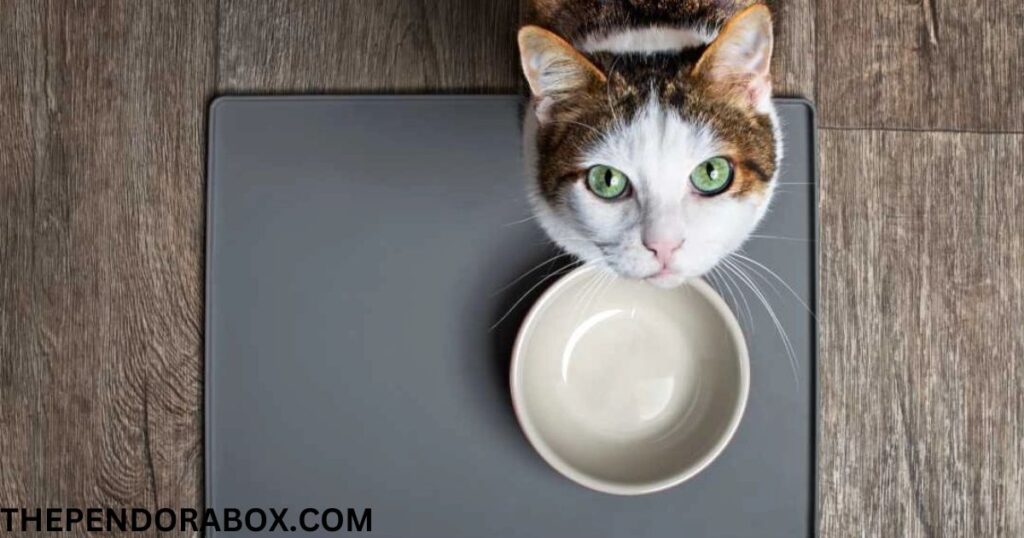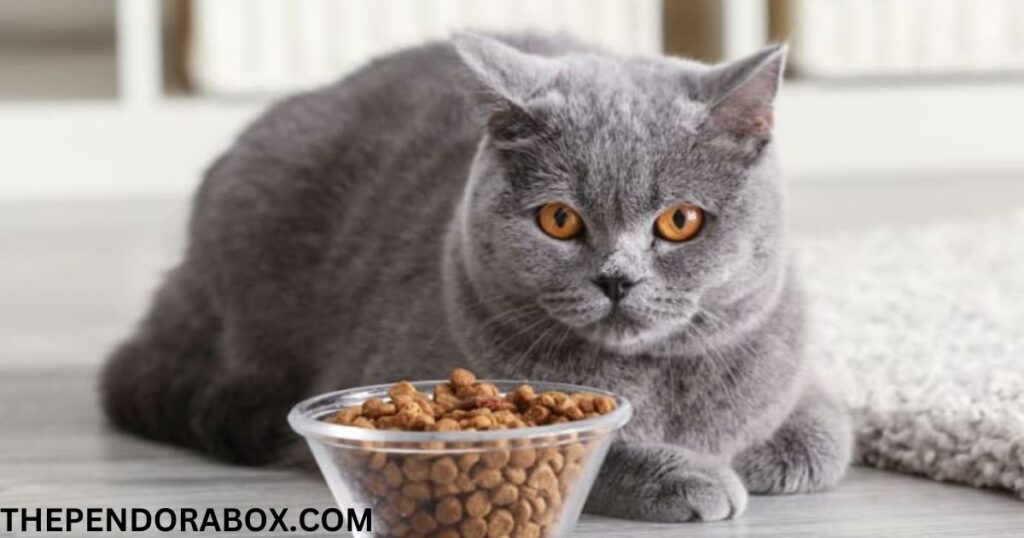Cats are loved by many, but their needs can worry us. This article answers how long a cat can live without eating. It talks about how their bodies react, what affects how long they can go, and health risks from not eating.
Cats need certain foods to stay healthy. They must eat foods high in protein and fat. When they don’t eat, their bodies try to save energy and keep basic functions going.
How long a cat can live without food changes based on their age, health, and if they have water. Knowing this helps us spot hunger and dehydration signs. This way, we can act fast to keep our cats safe and happy.
Understanding Feline Starvation
Cats need certain nutrients found in animal foods to live. Without these, they can get very sick. Knowing the signs of hunger helps keep cats healthy.
Physiological Responses to Lack of Nutrition
When a cat doesn’t eat, it uses its fat for energy first. Then, it starts to break down muscle. This makes the cat weak and can harm its organs.
Factors Affecting Survival Duration
How long a cat can go without food changes based on its age and health. Young, healthy cats can last longer than older or sick ones. Things like temperature and access to water also play a big role.
How Long Can a Cat Survive Without Food?
How long a cat Survive Without Food depends on many things. These include its age, health, and where it lives. Healthy adult cats can usually go 3-4 weeks without eating, as long as they have water.
Kittens and older cats can’t go as long without food. Kittens might only last 1-2 weeks. The cat’s body fat, muscle, and health also matter.
Where the cat lives is very important too. Cats in warm places or without water can get very sick quickly. But cats in cooler places with plenty of water can last longer.
| Factor | Survival Duration |
|---|---|
| Healthy adult cat | 3-4 weeks |
| Kitten | 1-2 weeks |
| Older cat | 2-3 weeks |
| Warm environment | Shorter duration |
| Access to water | Longer duration |
Remember, these are just general rules. Each cat is different. If a cat can’t eat for a long time, it’s best to see a vet.

Signs of Hunger and Dehydration
It’s important to know when a cat is hungry or dehydrated. Look for signs like meowing or crying more. They might also seem very tired and not want to play.
Behavioral Changes in Starving Cats
When a cat doesn’t eat or drink, they might stop grooming. This can make them look messy. They could also get angry or pull away from people they usually like.
Watch how your cat acts and see a vet if it’s different. Quick help can stop more problems. Knowing these signs helps keep your cat healthy and happy.
Potential Health Risks
Prolonged fasting in cats can lead to severe health issues. It can put their lives at risk. As feline starvation gets worse, the body’s vital organs may fail.
This can lead to life-threatening complications. Electrolyte imbalances, like abnormal sodium, potassium, and calcium levels, can disrupt the body’s balance. This is necessary for proper bodily function.
A weakened immune system can make cats vulnerable to infections. They become susceptible to serious illnesses. These need immediate veterinary attention.
The consequences of feline starvation are severe. They can quickly turn into a pet emergency. This demands quick animal welfare and cat health care.
It’s important to address the causes of feline starvation and seek medical help. This is crucial to prevent health risks. It ensures the well-being of our feline friends.
By understanding the gravity of this issue, pet owners can act fast. They can protect their cats’ health and longevity.
FAQ
How long can a cat survive without food?
A healthy adult cat can go 3-4 weeks without eating, as long as they have water. Kittens, older cats, and those with health issues might not last as long.
What physiological responses occur when a cat is deprived of food?
Without food, a cat’s body starts to use stored fat for energy. If fat runs out, it begins to break down muscle. This can harm organs and be dangerous if it goes on too long.
What factors affect a cat’s survival duration without food?
A cat’s age, health, weight, and environment play big roles. Young, healthy cats with more fat can go longer without food. Older, thinner, or sick cats might not last as long.
What are the signs of hunger and dehydration in cats?
Hungry or dehydrated cats might meow more, seem tired, or groom less. They could lose weight, have sunken eyes, dry gums, and less flexible skin. These signs need quick attention to avoid health problems.
What are the potential health risks associated with feline starvation?
Cats fasting too long face big health dangers. They could suffer organ failure, imbalances, and a weak immune system. Starving cats risk liver, kidney, and heart problems. Quick vet help is key to avoid these risks.

